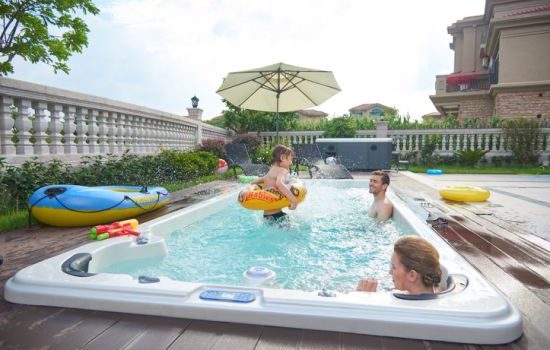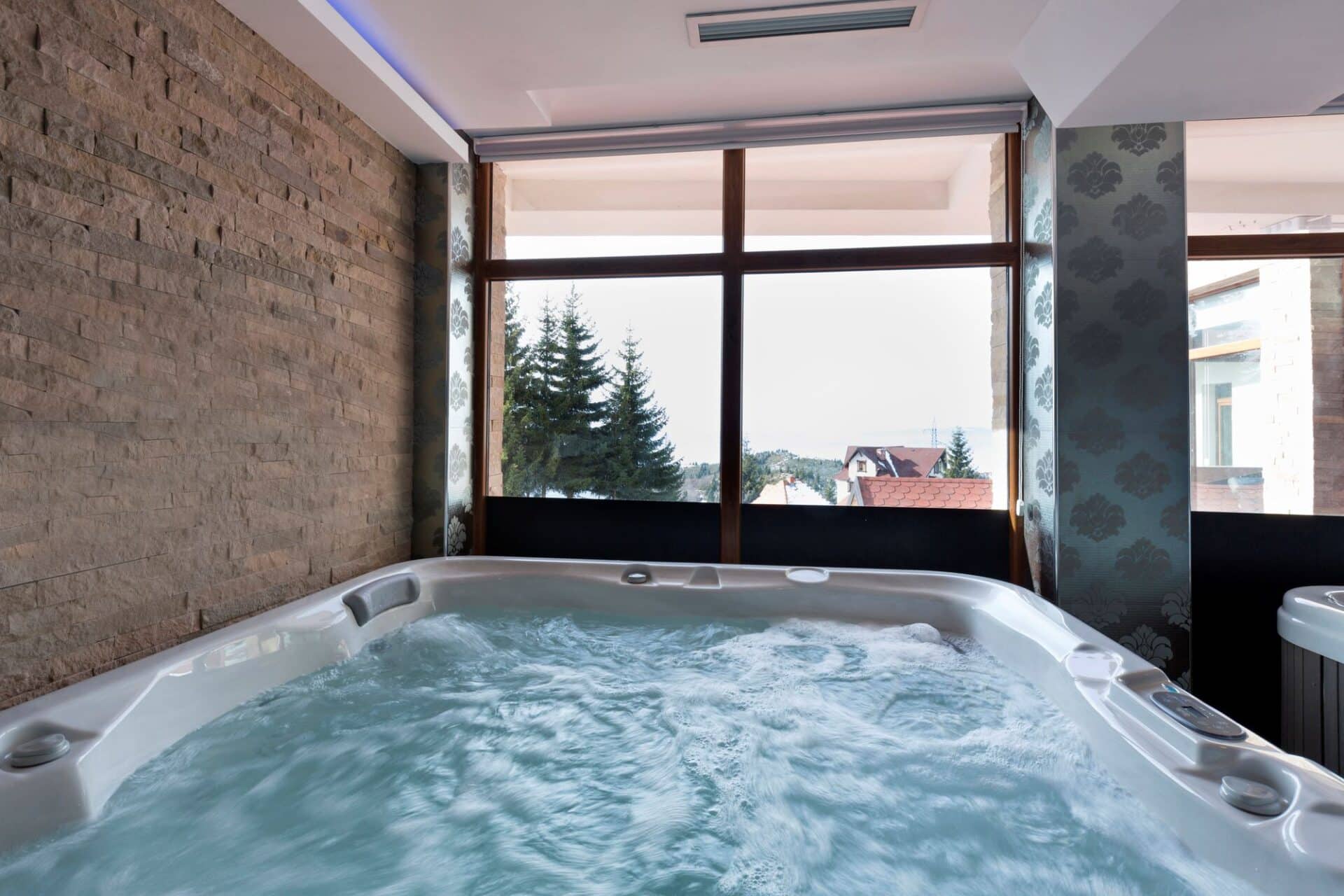Why Spa Pool Maintenance Matters in Auckland
Owning a spa pool in Auckland offers a great way to unwind, recharge, and enjoy your outdoor space throughout the year. But Auckland’s unique climate—with its humid summers, coastal breezes, and frequent rain—creates specific maintenance challenges.
Whether you’re in a high-wind suburb like Westmere or a salt-laden coastal zone like Devonport, understanding the relationship between local weather and your spa’s performance is key. Spa pool maintenance in Auckland’s climate demands consistency, awareness of seasonal changes, and a bit of forward planning to ensure water quality, equipment health, and overall enjoyment are never compromised.
How Auckland’s Climate Affects Spa Pools
Humidity, Rain, and Wind Exposure
Auckland’s subtropical climate brings periods of high humidity, which accelerate evaporation and promote algae growth. Rainfall is frequent and often unseasonal, affecting spa water chemistry by diluting sanitiser levels and disrupting pH balance.
Strong westerlies or coastal winds can carry leaves, dust, and pollen into uncovered spa pools, clogging filters and requiring more frequent cleaning. Add in salt air near the ocean and you’ve got a recipe for early wear on metal fixtures and components if your system isn’t protected.
Seasonal Use Patterns and Energy Impacts
In summer, spa pools see increased usage during social gatherings or evening relaxation. In winter, heating becomes essential, especially if the spa is used regularly. Auckland’s relatively mild winters mean many homeowners run their spa year-round, but this requires efficient heating systems and excellent insulation. Ignoring seasonal differences often leads to higher power bills and unnecessary equipment stress.
Daily and Weekly Maintenance Essentials
Stay Ahead with Routine Checks
Effective spa pool maintenance in Auckland’s climate starts with daily or every-other-day checks during peak usage months. Begin by skimming the water surface to remove debris, insects, or garden matter that might have blown in overnight. Check the water level, especially after rain, and inspect the cover for pooling or damage. If your spa is in a more exposed location—like a deck or rooftop—consider these checks essential.
Weekly Water Testing and Filter Cleaning
Once a week, test the water using a digital testing kit or reliable strips. Focus on pH, total alkalinity, and sanitiser levels (chlorine or bromine), adjusting as needed to maintain safe water quality. If your levels are off, Auckland’s fluctuating rain and temperature patterns could be the culprit. Clean your spa filters at least weekly by removing and rinsing them under a hose. This prevents pressure build-up, improves water circulation, and supports energy efficiency.
Monthly and Seasonal Spa Pool Care
Monthly Spa Inspections
Each month, take time to inspect your spa’s internal components, including pumps, jets, and plumbing connections. Look for any signs of wear, corrosion, or performance loss—especially if your spa is near the sea. This is also a good time to check insulation around pipes and ensure there are no leaks that could worsen with winter dampness or summer heat expansion.
Quarterly Draining and Cleaning
Every three to four months, drain the spa completely. Aucklanders who use their spa frequently—especially in family settings—may need to do this more often. Clean the shell thoroughly with a spa-safe, non-abrasive cleaner. Refill with fresh water and balance the chemistry immediately to avoid letting algae or bacteria take hold.

Managing Water Quality in Auckland’s Conditions
Understanding the Chemistry Behind Clear Water
Auckland’s changing weather demands a proactive approach to water chemistry. Spa pool maintenance in Auckland’s climate must account for rain, which dilutes chemical levels and can lower pH. After heavy rain, always test and rebalance the water. Aim to maintain:
- pH: Between 7.2 and 7.8
- Total Alkalinity: Between 80–120 ppm
- Sanitiser (chlorine or bromine): As per manufacturer guidelines
These parameters prevent irritation, cloudy water, and system damage.
Shock Treatments and Biofilm Control
With high humidity and increased use, biofilm can build up in pipework, reducing water clarity and promoting bacteria. Shock your spa regularly—at least monthly or after heavy use—and run a biofilm flush through the plumbing when draining the spa. This helps keep your water fresh and the entire system healthy, especially in Auckland’s warmer months.
Protecting Your Spa from Rain, Wind, and Debris
Choosing the Right Spa Cover
In a city where four seasons can show up in one day, a high-quality spa cover is vital. Look for a well-insulated, lockable model that fits snugly and resists UV and moisture damage. In suburbs prone to high winds, like Hobsonville or Howick, secure straps or wind clips are a must. Covers protect against rain dilution, falling debris, and heat loss—all major concerns for spa pool maintenance in Auckland’s climate.
Strategic Spa Placement and Wind Shelters
If your backyard catches the prevailing wind, create natural or artificial windbreaks to shield your spa. Slatted screens, glass panels, or tall hedging can block gusts and limit leaves and pollen entering the water. For homes with limited backyard space, placing the spa pool under an eave, pergola, or sheltered corner of the garden can reduce exposure to the elements and lower maintenance requirements.
Energy Efficiency Tips for Auckland Spa Pool Owners
Optimising Heat Retention
One of the biggest concerns for year-round spa use in Auckland is power consumption. To reduce energy costs, run your heating and filtration cycles during off-peak electricity hours where possible. A well-insulated spa—particularly the underside and pipework—will retain heat better and put less demand on the system.
When to Upgrade Your Heating System
If your spa is slow to heat or your power bill spikes in winter, consider upgrading to a modern heat pump or energy-efficient spa heater. Auckland’s moderate winter climate means you don’t need extreme heating capacity, but efficiency matters. An underperforming system not only drains energy but also shortens the spa’s lifespan over time.
When to Call a Spa Pool Technician in Auckland
Signs You Need Professional Servicing
While most routine tasks are manageable for homeowners, some maintenance should be left to qualified professionals. Call a technician if you notice unusual pump noises, poor water circulation, tripped power supplies, or stubborn chemical imbalances. Regular servicing can detect small issues early, saving money and downtime later on.
Finding Trusted Local Help
Auckland has several specialist spa pool service companies who understand the demands of local weather and water conditions. Many offer pre-winter and pre-summer service plans, which include filter replacement, jet cleaning, and heating system checks. Look for technicians who are familiar with the effects of salt air, urban pollution, and seasonal garden debris to get the best results.
FAQs: Spa Pool Maintenance in Auckland’s Climate
How often should I change the water in my spa?
In most Auckland households, every three to four months works well. However, if you’re using the spa daily or notice chemical imbalances after rain, change it more often.
Is rainwater bad for spa pools?
Yes. Rainwater lowers sanitiser levels and disrupts pH balance. Always test your spa water after a downpour and adjust your chemicals accordingly.
Can I use my spa pool in winter?
Absolutely. With proper heating and an insulated cover, Auckland’s mild winters are ideal for spa use. Just monitor energy use and keep your water chemistry in check.
Protecting Your Spa, Season After Season
Whether you’re soaking on a humid January evening or relaxing in the cooler months of June, consistent care is what keeps your spa running smoothly. Spa pool maintenance in Auckland’s climate requires attention to rain, wind, humidity, and seasonal energy use.
But with a solid routine, protective gear like covers and windbreaks, and occasional expert help, you can enjoy crystal-clear water and reliable performance all year round. Look after your spa and it will look after you—rain or shine.
